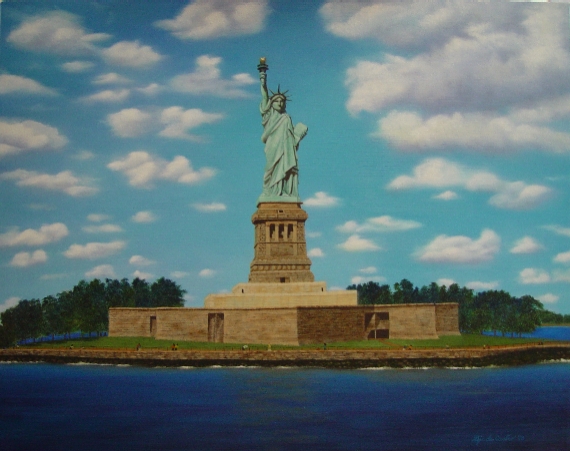Globalisation, Islam, and the Skyscraper
Up until only about 20 years ago, the only places in the world where you might see a proper skyscraper were America, parts of Europe and Australia. The Asian tiger economies-Japan, Taiwan, South Korea, Singapore and Hong Kong had managed to firmly put skyscrapers on Asian ground. But now, with the accelerating pace of Globalisation, we are starting to see the affects of skyscrapers on the worlds second largest religion-Islam.
Anyone who has been reading this blog from the start will be familiar with the construction boom in Dubai. Dubai has been reaping fantastic profits from selling oil around the world. But until very recently, it was a rarity indeed to see a skyscraper anywhere in the Middle East. Combine the Middle Easts skyscraper boom with that of ever-greater China, and the speed-up construction of tall buildings in traditional centres-Chicago, New York, and more recently, London-and, you will see that the world is just at the start of a new skyscraper boom, which has the ability to overshadow that of any past construction boom.
Let me introduce me to the Abraj Al-Bait, a 485 (take a bit of time to process that number) in Mecca. Yes, Mecca:
That's only one of the supertall (400m+) towers going up in the world today. There are huge towers planned for traditional cities, like New York, where the 517 metre Freedom Tower is eventually going to go up, and Chicago, where the 600 metre Chicago Spire is going up.
Yet you will also see towers going up in totally bizarre places. There is a 500m+ tower going up in Moscow at the moment, called the Federation Tower. Istanbul is building plenty. London is starting its skyscraper boom. Jakarta is getting new supertalls, as are several cities across Asia.
Soon, we could be living in a world where supertalls are a norm in many cities. The record for new world's tallest building could be changed in a matter of months for years on end. Even Australia is considering a 1000 metre tall "Solar Tower".
So what does this mean for the world? And for the religion of Islam?
Many Arabic countries have grown incredibly rich thanks to oil. But traditionally, these nations have been hostile to the rest of the world, and very closed and secretive. But what this means is that Arabic countries-like the UAE-are opening up to a world of globalisation. A world where everyone has a choice of where to go in the world. The Sultan of the UAE has certainly made it no secret that he wants the UAE to be a world center for tourism, commerce, industry, and almost everything, it may seem.
For the rest of the world, it means that people are no longer afraid to continually keep pushing the boundries of our buildings. Cost is, seemingly, a barrier no more. People are no longer afraid to be creative. Most importantly, it means that, in this new century, we will once again be an entrepreneural world. The only difference being that the word "world" actually applies to the entire world.



2 comments:
The more sky scrapers a country has or is building, the more free (economically) it is.
Yes, indirectly. Skyscrapers are an effect of people investing more-and most of that investement comes from private firms and corporations. This is why the developing nations are building so many new skyscrapers. As investment moves there, towers will naturally go up.
Post a Comment